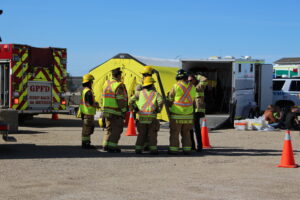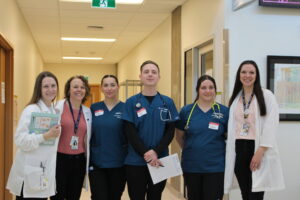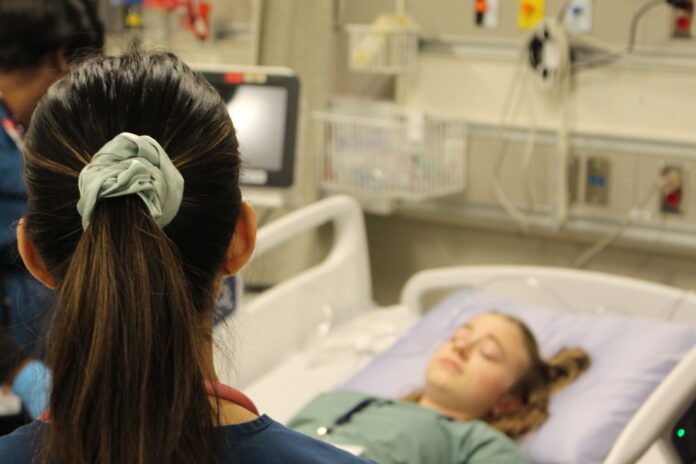NWP, along with numerous community partners came together for a mass casualty training event on April 24th, ending the school year with a bang, and establishing connections between prospective workers and potential future employers.
The exercise saw more than 100 participants including volunteer actors, post-secondary students, and industry professionals working together, utilizing real-life equipment and mock scenarios to sharpen their skills, learn new techniques, and connect with one another.

NWP’s Dean of Health Megan Stone says the event was significant for “so many reasons,” but for her, the greatest lesson was in collaboration.
“For the students- I hope they recognize the community effort that is special about where we live,” she says. “I think the main takeaway is we can do pretty amazing things when we work together and that we have pretty incredible education opportunities as we grow here at NWP.”
Stone adds that while NWP hosted the event, everyone who participated brought something to the table.
“Fire, police, AHS, Nursing faculty, our Paramedicine faculty, and NWP as a whole have all worked together to do our jobs, but do our jobs side by side and learn from one another and the best way to collaborate- both in a simulated environment and a real environment.”
Stone says her time as a Registered Nurse in Grimshaw put her eyes towards the importance of rural healthcare. She says healthcare in rural communities is simply “different” than anywhere else, so educational opportunities like these are critical in showing off the capabilities of NWP, especially as the school continues to expand.

“Rural health, especially in this region, is different- so we need really good generalist practitioners who are strong teammates, and who are feeling capable and confident in performing what they need to,” she says. “This exercise starts people thinking about that, working together, those simulated experiences so when they do go out to practice, they feel confident to do that and take care of the communities they’re a part of.”
“We know when we have students who are local- we train them local, in the local context, they’re generally more inclined to stay local, so that’s the idea.”
Thanks to the event’s success, Stone says she would “love” to see a similar event in the future.



